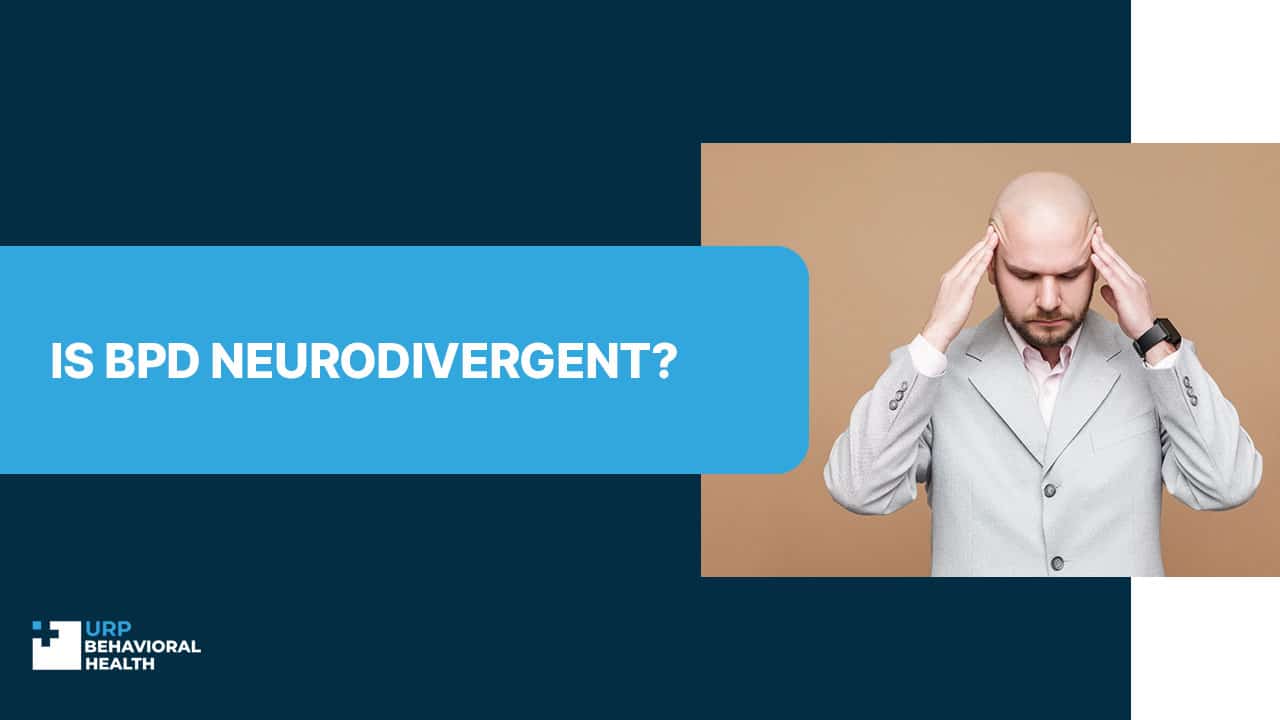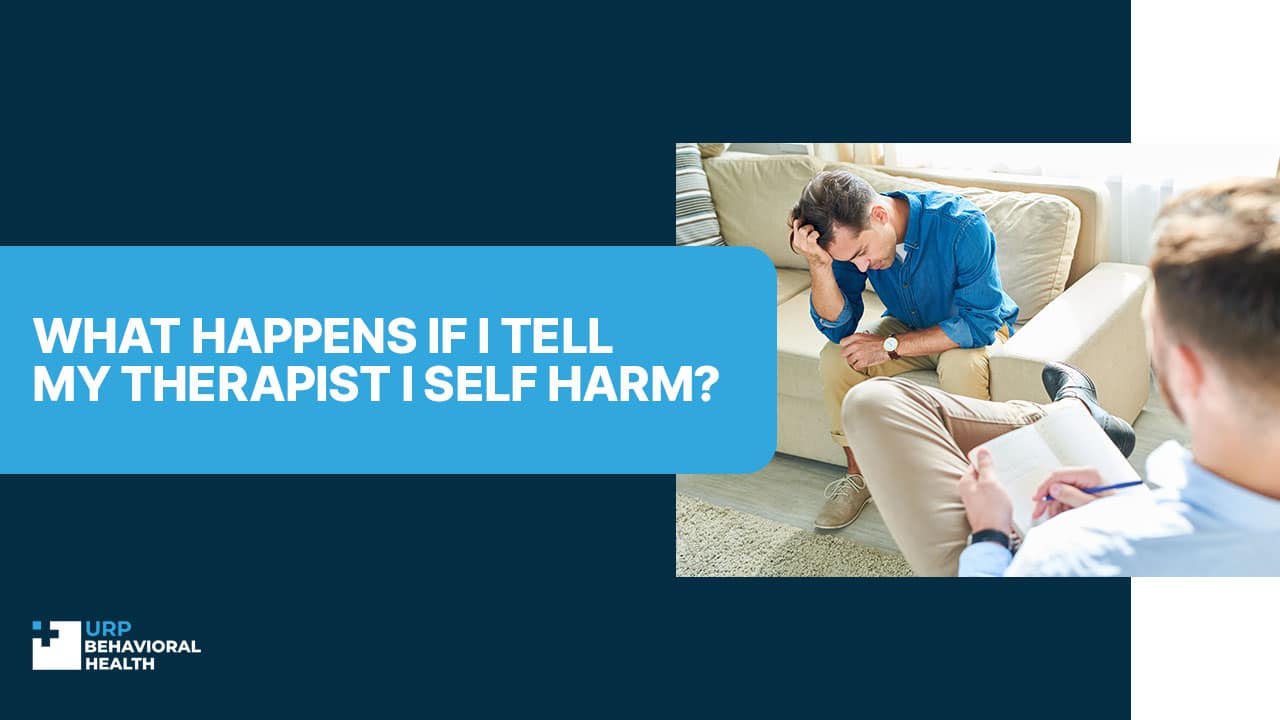
Is BPD Neurodivergent?
The term neurodivergence has been on everyone’s lips in recent decades. It provides a more tolerant attitude to people whose brains developed differently than in normotypic individuals.
Being neurodivergent means a person has cognitive-specific features which alter from standard cognitive functions. A neurodivergent person’s perception and processing of the information is different and this impacts their thoughts, emotional intelligence, and socialization. The term neurodivergence was proposed by Kassiane Asasumatsu, an activist whose mental state includes several neurodivergence at once. Then it was coined by Judy Singer, a sociologist [1]. This term refers more to natural-born peculiarities than to DSMM-5 diagnoses and it is used mainly to support people who define themselves as neurodivergent.
Primarily, the term ‘neurodivergence’ was applied to autism spectrum and ADHD diagnoses as neurodevelopmental disorders which occur in a fetus and manifest in early childhood due to improper brain and nervous system development. Today, its meaning expands to multiple other mental health conditions which previously were strictly determined as disorders. So, patients with diagnosed borderline personality disorder today wonder, is BPD considered neurodivergent or it remains in DSMM-5 scope of mental health diagnoses. Let’s learn more about this in the URP Behavioral Health blog.
Is Borderline Personality Disorder Neurodivergent?
The main intention of qualifying some neurodevelopmental disorders as neurodivergence is to attract attention to the fact that alternative ways of thinking, behavior or perception are not disorders but a kind of the norm. That is, they are not dysfunctions [2].
Neurodivergence enthusiasts advocate DSM disorders to be not a trial but a bunch of socially approved symptoms which describe someone’s behavior and cognitive functions. Society defines symptoms.
Contact our admissions team now to begin your path toward a brighter future.
What Does Scientific Community Say About BPD Neurodivergent Nature
As for the scientific community, there are disputes about the concept of neurodivergence and while some stand on classic opinion that only neurodevelopmental disorders are divergent others insist on expanding neurodivergence to include such disorders as:
- Down syndrome;
- Dysgraphia and dyslexia;
- Obsessive-compulsive disorder;
- Borderline personality disorder.
Both points of view still lack evidence-based proof and research data. Moreover, discussions about what is really neurodivergence still occur.
Are People With BPD Neurodivergent?
What speaks in favor of considering patients with BPD neurodivergent? Several symptoms of both these conditions overlap.
- According to the 2022 review, such symptoms of both ADHD and BPD as impulsivity and emotional instability and difficulties with empathy and emotional intelligence are highly overlapping [3]. While ADHD is considered neurodivergent, why is BPD then not classified that way?
- The roots for BPD manifestation are unclear but more researchers consider it to be genetically induced as risks of BPD in family members of a person with diagnosed borderline personality disorder are higher than in the average population.
- The studies for the brain structure in BPD-diagnosed patients showed that it differs from people without this diagnosis.
- One more argument in favor of neurodivergence in BPD people is that they have the symptoms of this disorder during their whole lifetime, like ADHD and autism diagnosed people have.
So, are people with BPD neurodivergent? They probably are. At once, there are some cons to claiming BPD people are neurodivergent. First, is the age of its onset. While ADHD and autism manifest at a baby age, typically BPD manifests at young adolescence with a well-established relation to early childhood trauma.
We’ll help you understand your options and guide you toward care.
Neurodivergence in BPD: How Does It Manifest?
If you consider BPD as a neurodivergent state of mind, what are the core features it manifests with?
- Long-lasting symptoms, which rarely enter full remission and can return in some triggering circumstances.
- Difficulties with emotions and their display are typical for most neurodivergent people, like for BPD as well.
- Necessity of being loved and supported in a certain way is also common for BPD patients, and this refers to neurodivergence.
When to Seek Help If You Notice You Are Neurodivergent and Suspect BPD?
Being neurodivergent requires from a person several important steps to take. However, the first thing is to get support from your family and close circle. It means that you need someone to share your feelings and get support from. Even the most severe manifestations of BPD can be compensated if you have support. Then the best thing is to get help from mental health specialists. Thorough diagnostics of BPD help find the best-working treatment. This is why you should contact a mental health treatment center to get comprehensive diagnostics, which include:
- Health history examination;
- An interview with a psychologist;
- Special BPD tests;
- Examination of ancestors.
Then a person with the manifestation of BPD can get help in the form of medical counselling for a patient and their family, group therapy, family therapy, CPA plans, and DBT methods [4]. Mentalization-based therapy and art therapy can also be effective, as the main goal of BPD treatment is to teach a patient how to cope with the symptoms and integrate into social life painlessly.
Brief Summary
Neurodivergent BPD people are today’s emerging fact. Although the opinions in the scientific society about the neurodivergence of BPD are controversial, the concept moves toward recognizing its neurodivergent essence. Like most recognized neurodivergent people, patients with borderline personality disorder manifest at an early age, and they have mental state differences during their whole life. Like ADHD and autism-diagnosed people, they have difficulties with emotions and different perceptions of information. They need help and support to integrate successfully into society, and they can live their happy life when provided with this care and support. In URP Behavioral Health, we help patients with BPD to ease their lives and improve their quality, and with the help of special treatment plans, we provide our patients with the opportunity to work, travel, communicate with others, build healthy relationships and empower their self-realization. Everyone is unique, and if your brain’s functioning differs from normal typical person’s, it’s just a sign you are neurodivergent, and your differences can be your power instead of being a source of pain and distress.
Reach out today and let us create a treatment plan designed around your needs.
Resources:
- https://www.ncbi.nlm.nih.gov/pmc/articles/PMC7732033/
- https://www.thelancet.com/journals/lanpsy/article/PIIS2215-0366(21)00167-X/abstract
- https://www.sciencedirect.com/science/article/pii/S2451902222001471
- https://www.nhs.uk/mental-health/conditions/borderline-personality-disorder/treatment/
















